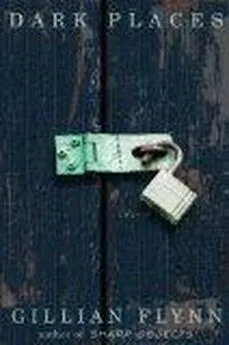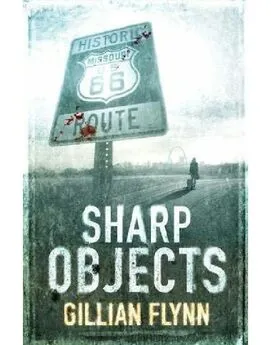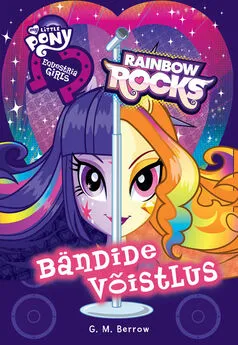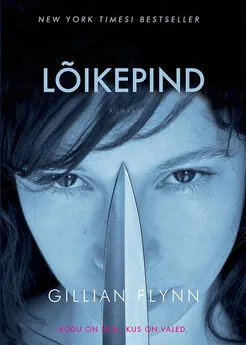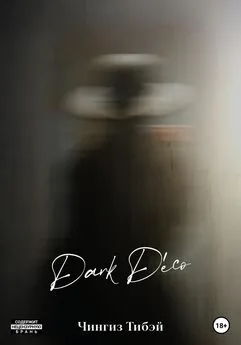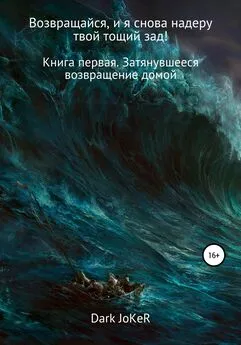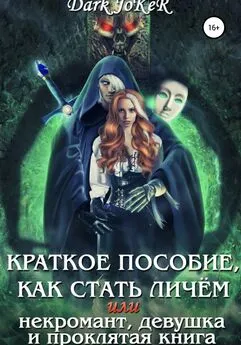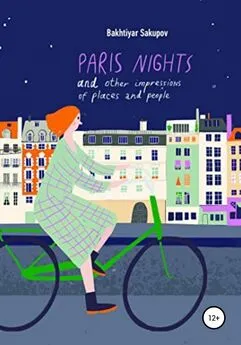Gillian Flynn - Dark Places
- Название:Dark Places
- Автор:
- Жанр:
- Издательство:неизвестно
- Год:неизвестен
- ISBN:нет данных
- Рейтинг:
- Избранное:Добавить в избранное
-
Отзывы:
-
Ваша оценка:
Gillian Flynn - Dark Places краткое содержание
Dark Places - читать онлайн бесплатно полную версию (весь текст целиком)
Интервал:
Закладка:
Was anyone going to take the farm away at some point? Shouldn’t someone? The best thing might be to get rid of the farm, start all over fresh, not tied to this big, dead, living thing. But it was his mom’s parents’ place, and she was sentimental. It was pretty selfish, when you thought about it. Ben worked all week on the farm, and then went back to the school on weekends to work his crap janitor’s job. (School and farm and farm and school, that’s all his life was before Diondra. Now he had a nice triangle of places to go: school and farm and Diondra’s big house on the edge of town.) He fed cattle and hauled manure at home, and pretty much did the same at school, cleaning locker rooms and mopping the cafeteria, wiping up other kids’ shit. And still he was expected to turn over half his paycheck to his mom. Families share . Yeah? Well, parents take care of their children, how about that one? How about not squirting out three more kids when you could barely afford the first one?
The bike clattered along, Ben waiting for the whole thing to go to pieces like some comedy routine, some cartoon where he ended up peddling on just a seat and a wheel. He hated that he had to bike places like Opie going to the fishing hole. He hated that he couldn’t drive. Nothing sadder than a boy just short of sixteen, Trey would say, shaking his head and blowing smoke toward him. He said this every time Ben showed up to Diondra’s on his bike. Trey was mostly cool, but he was the kind of guy who always had to get a jab in at another guy. Trey was nineteen, with long hair, black and dull like week-old tar, Diondra’s step-cousin or something weird like that, great-uncle or family friend or stepson of a family friend. He either changed his story a few times, or Ben wasn’t paying close enough attention. Which was entirely possible, since whenever he was around Trey, Ben immediately tensed up, got way conscious of his body. Why was he standing with his legs at that angle? What should he do with his hands? On his waist or in his pockets?
Either way felt weird. Either way would lead to jokes. Trey was the kind of guy that would look for something just slightly but truly wrong about you that you didn’t even notice and point it out to the whole room. Nice highwaters was the first thing Trey ever said to him. Ben was wearing jeans that were maybe, possibly, half an inch too short. Maybe an inch. Nice highwaters . Diondra had screeched at that. Ben had waited for her to stop laughing, and Trey to start talking again. He’d waited ten minutes, saying nothing, just trying to sit at an angle where his socks wouldn’t peek out too much. Then he’d retreated to the bathroom, unlooped his belt a notch, pulled the jeans down near his hips. When he came back to the room—Diondra’s downstairs rec room, with blue carpet and beanbags everywhere like mushrooms—the second thing Trey ever said to him was, “Your belt’s down to your dick now, man. Ain’t foolin’ no one.”
Ben rattled down the trail in the cold shade of winter, more flakes of snow floating in the air like dust motes. Even when he turned sixteen, he wouldn’t have a car. His mom had a Cavalier that she bought at an auction; it had once been a rental car. They couldn’t afford a second one, she’d already told Ben that. They’d have to share, which immediately made Ben not want to use it at all. He already pictured trying to pick up Diondra in a car that smelled of hundreds of other people, a car that smelled completely used—old french fries and other people’s sex stains—and on top of that, a car that was now cluttered with girls’ schoolbooks and yarn dolls and plastic bracelets. That wouldn’t work. Diondra said he could drive her car (she was seventeen, another problem, because wasn’t that sort of embarrassing to be two grades below your girlfriend?). But that was a much better vision: the two of them in her red CRX, with its jacked-up rear end, Diondra’s menthol cigarettes filling the car with perfumey smoke, Slayer blasting. Yeah, much better.
They’d drive out of this crap town, to Wichita, where her uncle owned a sporting-goods store and might give him a job. Ben had tried out for both the basketball and football teams and been cut early and hard, in a don’t-come-back sort of way, so spending his days in a big room filled with basketballs and footballs seemed ironic. Then again, with all that equipment around, he might be able to practice, get good enough to join some men’s league or something. Seemed like there must be a plus-side.
Of course, the biggest plus-side was Diondra. He and Diondra in their own apartment in Wichita, eating McDonald’s and watching TV and having sex and smoking entire packs of cigarettes in a night. Ben didn’t smoke much when Diondra wasn’t around—she was the addict, she smoked so much she smelled like tobacco even after a shower, like if she slit her skin, menthol vapor would ooze out. He’d come to like it, it smelled like comfort and home to him, the way warm bread might to someone else. So that’s how it would be: He and Diondra, with her brown spiraly curls all crunchy with gel (another smell that was all her—that sharp, grape-y sting of her hair), sitting on the sofa watching the soap operas she taped every day. He’d gotten caught up in the drama: big-shouldered ladies drinking champagne with diamonds flashing from their fingers while they cheated or their husbands cheated or people got amnesia and cheated. He would come home from work, his hands smelling of that dusty basketball leather smell, and she’d have bought his McDonald’s or Taco Bell and they’d hang out and joke about the spangly ladies on TV, and Diondra would point out the ones with the nicest nails, she loved her nails, and then she’d insist on painting his, or putting lipstick on him, which she loved to do, she loved to make him pretty, she always said. They’d end up in a tickle fight on the bed, naked with ketchup packets smashed to their backs, and Diondra would monkey-laugh so loud the neighbors would bang on the ceiling.
This image wasn’t quite complete. He’d deliberately left out one very frightening detail, just completely erased certain realities. That can’t be a good sign. It meant the entire thing was a daydream. He was an idiot kid who couldn’t even have something as small as a shitty apartment in Wichita. Not even something as tiny as that could he have. He felt a surge of familiar fury. His life was a long line of denials, just waiting for him.
Annihilation . Again he saw axes, guns, bloody bodies smashed into the ground. Screaming giving way to whimpers and birdsong. He wanted to bleed more.
Libby Day NOW
When I was a kid, I lived with Runner’s second cousin in Holcomb, Kansas, for about five months while poor Aunt Diane recuperated from my particularly furious twelfth year. I don’t remember much about those five months except that we took a class trip to Dodge City to learn about Wyatt Earp. We thought we’d see guns, buffalo, whores. Instead, about twenty of us shuffled and elbowed into a series of small file rooms, looking up records, the entire day packed with dust motes and whining. Earp himself made no impression on me, but I adored those Old West villains, with their dripping mustaches and slouchy clothes and eyes that glowed like nickel. An outlaw was always described as “a liar and a thief.” And there, in one of those inside-smelling rooms, the file clerk droning on about the art of archiving, I jiggled with the good cheer of meeting a fellow traveler. Because I thought, “That’s me.”
I am a liar and a thief. Don’t let me into your house, and if you do, don’t leave me alone. I take things. You can catch me with your string of fine pearls clickering in my greedy little paws, and I’ll tell you they reminded me of my mother’s and I just had to touch them, just for a second, and I’m so sorry, I don’t know what came over me.
My mom never owned any jewelry that didn’t turn her skin green, but you won’t know that. And I’ll still swipe the pearls when you’re not looking.
I steal underpants, rings, CDs, books, shoes, iPods, watches. I’ll go to a party at someone’s house—I don’t have friends, but I have people who invite me places—and I’ll leave wearing a few shirts under my sweater, with a couple of nice lipsticks in my pocket, and whatever cash is floating inside a purse or two. Sometimes I even take the purse, if the crowd is drunk enough. Just sling it over a shoulder and leave. Prescription pills, perfume, buttons, pens. Food. I have a flask someone’s granddad carried back from WWII, I own a Phi Beta Kappa pin earned by some guy’s favorite uncle. I have an antique collapsible tin cup that I can’t remember stealing, I’ve had it so long. I pretend it’s always been in the family.
The actual stuff my family owned, those boxes under my stairs, I can’t quite bear to look at. I like other people’s things better. They come with other people’s history.
One item in my home I didn’t steal is a true-crime novel called Devil’s Harvest: The Satan Sacrifice of Kinnakee Kansas . It came out in 1986, and was written by a former reporter named Barb Eichel, and that’s all I really know. At least three semi-boyfriends have given me a copy of this book, solemnly, wisely, and all three of them were dumped immediately after. If I say I don’t want to read the book, I don’t want to read the book. It’s like my rule about always sleeping with the light on. I tell every man I sleep with that I always keep the lights on, and they always say something like, “I’ll take care of you, baby,” and then try to switch off the lights. Like that’s that. They somehow seem surprised that I actually sleep with the lights on.
I dug out Devil’s Harvest from a leaning stack of books in the corner—I keep it for the same reason I keep the boxes of my family’s papers and crap, because maybe I’ll want it someday, and even if I don’t, I don’t want anyone else to have it.
The opening page read:Kinnakee, Kansas, in the heart of America, is a quiet farming community where folks know each other, go to church with each other, grow old alongside each other. But it is not impervious to the evils of the outside world—and in the early hours of January 3, 1985, those evils destroyed three members of the Day family in a torrent of blood and horror. This is a story not just of murder, but of Devil worship, blood rituals, and the spread of Satanism to every corner of America—even the coziest, seemingly safest places.
My ears started their hum with the sounds of that night: A loud, masculine grunt, a heaving, dry-throat wail. My mother’s banshee screams. Darkplace. I looked at the back-page photo of Barb Eichel. She had short, spiky hair, dangling earrings, and a somber smile. The biography said she lived in Topeka, Kansas, but that was twenty-some years ago.
I needed to phone Lyle Wirth with my money-for-info proposal, but I wasn’t ready to hear him lecture me again about the murder of my own family. (You really think Ben’s guilty!) I needed to be able to argue with him instead of sitting there like some ignoramus with nothing useful to say. Which is basically what I was.
I scanned the book some more, lying on my back, propped up on a twice-folded pillow, Buck monitoring me with watchful kitty eyes for any movement toward the kitchen. Barb Eichel described Ben as “a black-clad loner, unpopular and angry” and “obsessed with the most brutal form of heavy metal—called black metal—songs rumored to be little more than coded calls to the Devil himself.” I skimmed, naturally, until I found a reference to me: “angelic but strong,” “determined and sorrowful” with an “air of independence that one usually doesn’t find in children twice her age.” Our family had been “happy and bustling, looking forward to a future of clean air and clean living.” Mmm-hmm. Still, this was supposedly the definitive book on the murders, and, after all those voices at the Kill Club telling me I was a fool, I was eager to speak with an outsider who also believed that Ben was guilty. Ammo for Lyle. I pictured myself ticking off facts on my fingers: this, this, and this proves you jackasses are wrong, and Lyle unpursing his lips, realizing I was right after all.
Читать дальшеИнтервал:
Закладка:
